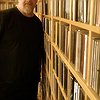Tell us a bit about the selection process for deciding on what to write about, please. What sources will you draw from for research purposes and how much time goes into research, information gathering and fact-checking in general?
Figuring out what the story is, what the angle is on a band or an album is incredibly important, as it provides a kind of map as to where you’re going. Of course you have to be flexible and be prepared to change direction as the needs of the piece demand and dictate.
I spend more time thinking about the article than actually writing it. When I’m working on a piece it’s constantly bouncing around in my head - when I’m out walking, shopping for groceries, hanging out the washing on the line, constantly thinking about the piece and how it will work. Then, I write it all up at the last possible moment. That’s not necessarily the best way to do things but it is how I do it.
Given that I mostly write about music from the 60s and 70s, it’s an inescapable fact that these people are slowly but surely dying off. It makes me realise just how ephemeral and transient our culture can be especially when you’re dealing, as I do, with people who aren’t necessarily household names with lots of press written about them. So a lot of what I do is about documenting and capturing that experience from people who were there, the primary sources. In that sense a lot of what I do is to bear witness to what I think most people would agree was a remarkable period of astonishing creativity in the 20th Century.
I’ve assembled a reasonable library of music-related references in my office, supplemented with information gleaned from visits to the British Library’s periodical annexe at Colindale. However, like everyone these days, it’s the internet that’s really the first port of call. I can’t begin to imagine how I would have functioned as a full-time writer without the internet. I’d built up an impressive collection of music magazines over the years but had to ditch them because of space restrictions. It was almost traumatic getting rid of all these magazines, which in theory, were part of my reference library but truth be told I’d not looked at them in a decade. So out they went.
As more and more people are producing and releasing music, there has been an exponential growth in promotion agencies. What's your perspective on the promo system? In how far is it influencing your choice of articles and topics, in how far is it useful for pre-selection, in how far do you feel it is possibly undermining journalistic freedom?
Over time you build up a relationship with some PR companies and they’ll ferry stuff your way that they think you’ll be able to do something with. As long as you understand that they are in the business of trying to get their product to the top of your list and they’re not your friend then it’s a fairly pain-free relationship. Sometimes, no matter how hard a sell, if I don’t see any merit in a particular release or band, then nothing is going to persuade me to write about it.
How do you see the role of music journalism in the creative process? Should it amplify public taste, distinguish the good from the bad, inform, promote artists, or, as Howard Mandel put it, “illuminate, educate and entertain” readers? Do you feel that, as part of your work, music needs to be explained or should it retain its “inexplicable nature”?
Music is where the real heat is. At best, writers are chasing a heat trace as a means of getting closer to the source itself, and somehow making sense out of something that is in essence, unknowable. When I write about an album or an artist, I’m often trying to share the experience of listening rather than sitting in judgement upon it. The sneery, hipper-than-thou-gunslinger part of music journalism holds no interest to me whatsoever. I’m trying to share my enthusiasm and point to the thing that made the hairs on the back of my neck stand to attention because there’s a chance it might have the same impact on someone else’s life.
Music journalism has frequently been attacked for merely expressing opinion. On the other hand, it is precisely personal interest in an artist and/or his work which frequently provides for a stimulus to delve into them in more depth. How would you describe the importance of subjectivity for your writing?
It’s absolutely subjective and that’s fine as far as I’m concerned. I’m not interested in writing manifestos or inventing some kind of star rating as others have done. My writing reflects my state of mind at the time. Will my judgement on an individual album change over the course of say ten years? Of course it will, because hopefully, I’m changing and growing as a person as well. How we hear or respond to an artist or an album depends on so many factors, not least of which are time and place. In the end it’s all subjective but that’s fine.
In which way does writing and reading about music change the way it is perceived by the public?
There’s always been an element of spin-doctoring going on in music journalism, an element of selling something. But it can be a noble activity as well. If anything I’ve written has introduced somebody to a band or composer or an album, and they fall head over heels in love with it, then as far as I’m concerned, it’s job done. Not so much a writer as a matchmaker!
Whom do you feel your obligation to – the artists, the readers, the publication you're writing for? In how much do you feel is music journalism restricted by external factors?
I always try and make sure I tell the story as clearly as possible and in doing so, respect all parties concerned. Sometimes artists don’t always want to talk about an aspect of their work but the editor has specifically asked for commentary on that very part. So, it can be a bit of a balancing act at times.





